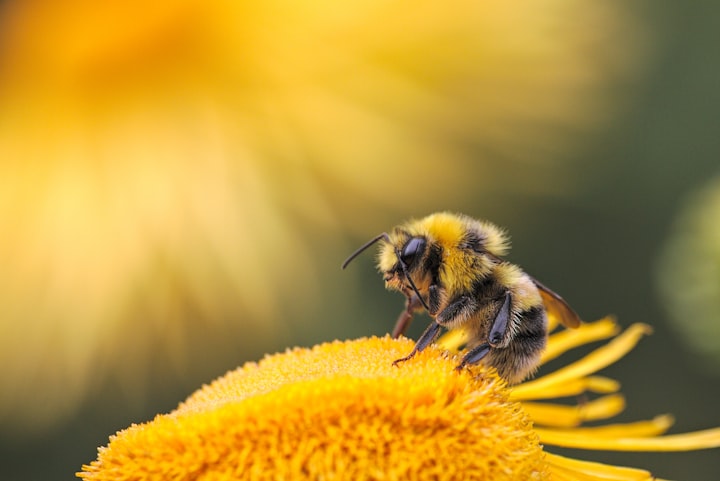For the Bees (And Us)
Simple things you can do to help protect and care for bees.

As we enter the warmer season and enjoy more time outdoors, it’s important to remember our hardworking little neighbor: the bee. Bees play a critical role in our ecosystem and are responsible for pollinating plants that we eat end enjoy every day. Bee work is truly critical to the entire planet, so it is of the upmost importance that we all do our part to protect them. Bee population rates have been declining at alarming rates in recent years, but there are a few things you can do as an individual to help.
1. Plant bee-friendly gardens. Bees prefer gardens with variety and are attracted to a wide array of plants. Some bee favorites include lavender, crocus, sunflower, marigold, geranium, poppy, peony, rosemary, sage, oregano, garden mint, and columbine, but really, the list is endless. Bees are also particularly attracted to the color purple. Do research into what plants are native to your area and be sure to plant a variety. A bonus is you may attract other pollinators like butterflies and hummingbirds! One of the first sources of nutrition for the bee early in the season is those little yellow dandelions that you just loved to pluck as a kid. While you may think of them as weeds, leave them put! Think of them as a sort of precursor to the garden you hope to have later in the season.
Being bee-friendly means avoiding pesticides and chemicals at all costs! They are poison to bees, humans, and pets alike, so choose natural alternatives whenever possible. When buying plants from your local greenhouse, be sure to ask what pesticides they use and search for retailers that sell only plants without neonicotinoid pesticides, also known as neonics. These commonplace chemicals and pesticides have been linked heavily to the onslaught of colony death and are already banned in many places. Be a smart consumer and make sure you are not unknowingly harming the bees you are trying to protect. Reducing and eliminating the prevalence of harsh chemicals in our environment is crucial to protecting our planet for generations to come.
2. Provide Hydration Stations. Bees need water but can’t drink from deep sources due to the possibility of drowning. Fill a small saucer, drip tray or other shallow dish with large pebbles and water. Bees will be able to land and rest on the pebbles while getting a much-needed drink. It is important to replace the water every few days to eliminate any mosquito larvae or other build-up.
3. Support Local Beekeepers. Buy local honey, beeswax and other locally made products. Farmers markets are a great place to source such local products. As a bonus, not only will you be supporting hardworking bees and their keepers, local honey has been known to help ease symptoms in allergy sufferers.
Part of being bee-friendly means being Earth-friendly. Here are some other activities you can engage in in your everyday life to take care of our planet:
- Recycle or reuse bottles and containers and avoid single-use plastics and other containers when possible.
- Compost food waste.
- Only run the dishwasher when it is full.
- Shorten your shower time and be sure to turn off the faucet when you shave or brush your teeth.
- Turn off lights and other electronics when you leave a room.
- Pick up after your pet to ensure the waste doesn't get into the water supply.
- Do not dump anything into storm drains.
- Pick up after yourself. Do not litter.
- Join a community garden.
- Carpool and limit errands by car.
- Take your car to commercial car washes where water is recycled.
Even engaging in one or two of these behaviors regularly can make a big difference toward a brighter, healthier future for our world.
About the Creator
Merrie Sanders
Writing for fun and as an escape from the everyday. After all, what is life for if not to create?






Comments
There are no comments for this story
Be the first to respond and start the conversation.